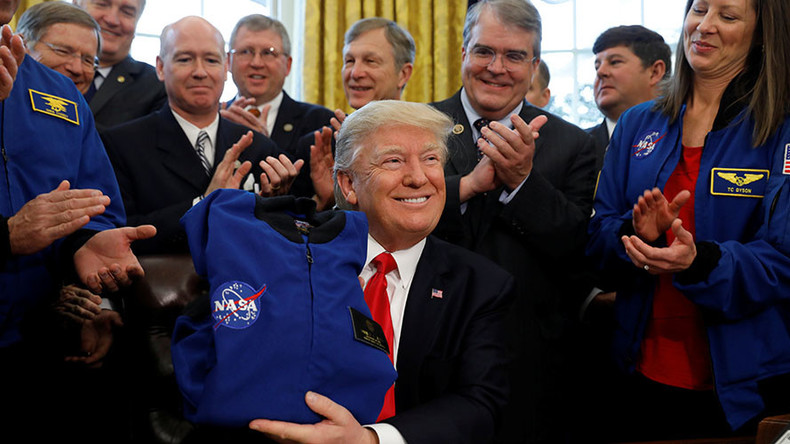Outer space. The final frontier. Black holes, massive stars, planets which may harbor life, and numerous galaxies. It’s endless and unknown, which is why it sparks such interest within people. We’ll never run out of things to learn about that mysterious space beyond our atmosphere. And once we’ve solved some of the mysteries of the cosmos, we’ll still have the challenge of transporting humans to these far reaches of the universe. With regal goals like these, you would think everyone would be interested and passionate about these topics, but in fact this is not the case. Only 22 percent of Americans are strongly interested in space travel. I posit that we should foster this interest because, after some recent legislation, it is entirely possible that the trajectory of discovery we have been working towards for decades could be thrown entirely off track.

In 2011, the space shuttle program was discontinued, the end of an era of space exploration which had put the first men on the moon. This wasn’t seen as such a defeat, however, because the new focus was on space exploration farther than the moon. Our sights were newly set on Mars. At the moment, it has been 45 years since a human was present on the moon. But a new legislative act from Trump could change that. In December 2017, Trump issued a directive that NASA should refocus its efforts on the moon, and that the US would cease funding of the International Space Station by 2025. The ISS has been one of the most successful efforts in international research collaboration, and has allowed numerous experiments on the effects of near-earth atmospheric conditions. With the end of this program, human presence in low-orbit space would decrease, as would the science being done there.

In this same directive, though, Trump did emphasize that new low-orbit programs should be developed, but as collaborations with private companies. This change in financial strategy is aimed to free up the massive budget needed to revive the moon-based missions. Finances have often been a problem with presidential lofty dreams of outer space based success. President George W. Bush also pushed for increased Moon presence, but failed to set aside sufficient funds in the budget. It has yet to be seen if Trump will face this same issue. The question remains, though, where does a moon-based approach get us? One strategy is that the Moon can be used as a more efficient departure point for a journey to Mars, after (of course) significant development there to allow for this type of usage. Whether or not this strategy will prove effective, only time can tell.

Perhaps the worst of all, even beloved Bill Nye is getting caught in the crosshairs. Trump’s recommended new leader of NASA, Senator Nelson, is a fairly controversial figure. Any association with Trump can be damning these days, but his views on climate change have also alienated many citizens who care about science. Recently, Nelson invited Nye (President of the Planetary Society) as his honored guest to the State of the Union Address. As a result of his post within this organization, Nye accepted the offer, and the clapback was strong. Many saw this move as an alignment with the Trump administration, and some science advocacy groups called him out on his decision to attend. He later defended his actions on Twitter, citing his responsibility as leader of the Planetary Society, which collaborates frequently with NASA. Luckily, any Bill Nye hate seems to have died down.

In these crazy times, we all need to take a step back and remember what’s important. Priorities of NASA may be shifting, but space exploration is still being funded by our government. We may not get to Mars as quickly, but surely we’ll learn some things about our cosmic neighbor, the moon. Perhaps the commercialization of this research will aid it as well, accelerating what would otherwise have been a slower process to gain knowledge. But most importantly, let’s not jump to attack Bill Nye. He’s a national icon.
To the moon and back,
Natalie Cummings






